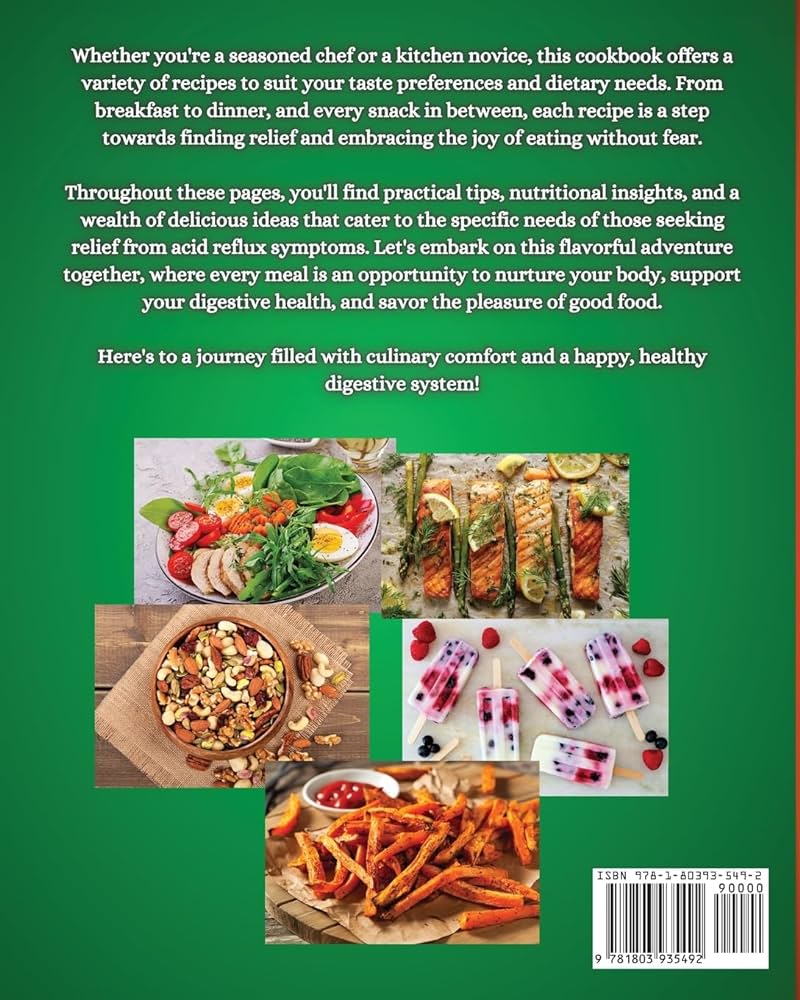Acid reflux sufferers should focus on eating non-acidic fruits, vegetables, lean proteins, and whole grains, and avoid fatty and spicy foods. Cooking tips include steaming, grilling, and baking instead of frying, and using herbs and spices instead of citrus and tomato-based ingredients.
Modified recipes can include using low-acidic ingredients and smaller portion sizes to prevent flare-ups. Struggling with acid reflux can be challenging, especially when it comes to making dietary choices. The discomfort and pain associated with this condition can often be exacerbated by certain foods and cooking methods.
However, by making smart choices in the kitchen and modifying recipes, it’s possible to alleviate symptoms and enjoy delicious meals without the fear of heartburn. In this guide, we’ll explore the best foods to eat, cooking tips to minimize acidity, and recipe modifications to help you manage acid reflux effectively. With these helpful strategies, you can navigate your acid reflux journey with confidence and ease.
Understanding Acid Reflux
Acid Reflux Diet focuses on modifying eating habits to manage symptoms. Understanding the causes can help alleviate discomfort. To combat lingering effects, recognizing the symptoms is crucial.
Impact Of Diet On Acid Reflux
Eating spicy and fried foods can worsen acid reflux symptoms.
Citrus fruits and tomatoes are acidic and can trigger heartburn.
Mint, chocolate, and caffeinated drinks can relax the muscle that controls the flow of the stomach acid.
Opt for high-fiber foods like fruits, vegetables, and whole grains.
Lean proteins such as chicken, fish, and turkey are good choices.
Low-fat dairy products and non-citrus fruits can help alleviate symptoms.
Expert Cooking Tips For Acid Reflux Relief
Cooking Tips for Acid Reflux Relief:
Eat low-acid ingredients like vegetables and lean proteins to ease symptoms.
Use cooking techniques such as grilling or baking instead of frying to reduce fat intake.

Credit: www.everydayhealth.com
Meal Planning For Acid Reflux
Planning meals for individuals with acid reflux can help alleviate symptoms and promote overall digestive health. It is important to choose foods that are gentle on the stomach and esophagus, and avoid triggering acidic or spicy foods that can exacerbate symptoms. Here is a sample meal plan for an acid reflux-friendly diet:
| Meal | Food Options |
|---|---|
| Breakfast | Egg white omelet with vegetables, whole-grain toast with almond butter |
| Lunch | Grilled chicken breast with steamed vegetables and brown rice |
| Snack | Plain Greek yogurt with sliced banana |
| Dinner | Baked salmon with quinoa and roasted asparagus |
For snack ideas, consider options such as apple slices with almond butter, carrot sticks with hummus, or a small handful of nuts. It is also important to eat smaller, more frequent meals throughout the day rather than large, heavy meals. Additionally, avoid eating close to bedtime and try to stay upright for at least three hours after a meal to reduce the risk of acid reflux symptoms. By following a well-balanced meal plan and making modifications to your cooking techniques, you can help manage acid reflux and enjoy a more comfortable eating experience.
Lifestyle Changes For Managing Acid Reflux
Eating Habits
Eating habits play a crucial role in managing acid reflux. Avoiding large meals and instead opting for smaller, more frequent meals can prevent overeating, which can trigger symptoms. It is important to chew food thoroughly and eat slowly to aid digestion. Avoid lying down immediately after a meal as it can cause stomach acid to rise. Elevating the head while sleeping can also help reduce nighttime symptoms. To minimize triggers, it is recommended to avoid foods that may aggravate acid reflux such as spicy, fatty, and fried foods. Acidic fruits like citrus should be consumed in moderation. Additionally, limiting intake of caffeine, alcohol, and carbonated drinks is also advisable.
Other Tips for Relief
Aside from eating habits, there are other lifestyle changes that can provide relief from acid reflux. Maintaining a healthy weight is important as excess weight can put pressure on the stomach and worsen symptoms. Wearing loose-fitting clothes can also prevent unnecessary pressure on the abdomen. Quitting smoking is highly recommended as smoking can relax the lower esophageal sphincter, allowing stomach acid to flow back into the esophagus. It may also be helpful to avoid lying down for at least three hours after eating. Finally, practicing stress-reducing techniques such as exercise, yoga, or meditation can also contribute to managing acid reflux symptoms.

Credit: www.goodreads.com

Credit: www.amazon.com
Frequently Asked Questions On Acid Reflux Diet What To Eat Cooking Tips And Modifications
What Is The Best Food To Eat When Having Acid Reflux?
Best foods for acid reflux are non-citrus fruits, vegetables, lean proteins, whole grains, and low-fat dairy products. Avoid spicy and fatty foods.
How Do You Cook Acid Reflux Diet?
To cook for an acid reflux diet, avoid trigger foods like fried and spicy dishes. Choose lean proteins and non-citrus fruits. Opt for smaller, more frequent meals to minimize discomfort. Be mindful of portion sizes and avoid lying down right after eating.
Experiment with cooking methods to find what works best for you.
What Foods Neutralize Stomach Acid?
Foods that can neutralize stomach acid include oatmeal, ginger, and non-citrus fruits like melons and bananas. Also, vegetables such as green beans, broccoli, and asparagus can help. Consuming lean proteins like chicken and turkey can also have a neutralizing effect.
What Are Lean Meats For Acid Reflux?
Lean meats such as chicken, turkey, and fish are good options for acid reflux. They are easy to digest and less likely to trigger symptoms.
Conclusion
Incorporating acid reflux-friendly foods into your diet can help manage symptoms effectively. By following cooking tips and making modifications, you can enjoy flavorful meals without aggravating your condition. Remember to listen to your body and consult with a healthcare provider for personalized advice.
Stay informed and take control of your diet for better digestive health.

